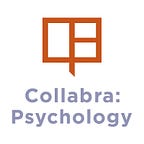“When Publishers Aren’t Getting It Done” (or, an exercise in masochism)
What do scholarly communication initiatives such as protocols.io, The Winnower, Altmetric, and Open Library of Humanities have in common?
And how about ventures such as Ubiquity Press, Open Access Key (OAK), Hypothes.is, Science Exchange, Dryad, PubPeer, Authorea, Center for Open Science (COS), Scalar, and Publons?
Not sure? Well, not only do they represent new innovations in scholarly communication, but they also share the distinction of being launched independently of existing publishers.
In fact, research by Kramer and Bosman clearly shows that driving forces in publishing innovation are not publisher led — at least not by existing publishers. (To chart this changing landscape in scholarly communication, Kramer and Bosman are currently running a survey to learn more, which I highly recommend you take part in.)
Which brings me to the crux of this post: To share the dynamic, sometimes humorous, definitely charged and energizing discussion that took place around this topic at the recent annual meeting of the Association of American University Presses (AAUP) in Denver. Kevin Hawkins and I framed a panel session titled “When Publishers Aren’t Getting it Done” (no doubt a title worthy of a masochism award at a publishers meeting!), and I then invited a lively group of scholar-led innovators to be a part of our panel.
Rather than opt for a lecture-style format, I prepared questions for the panel and the audience instead. You can find the questions on slideshare, but a quick survey of Twitter shows just how much energy the panel have for wanting answers!
Here is a small taste of the kickoff. The full scope of questions and answers will soon be published in The Winnower.
As the panel kicked off, the room was full of jokes and curiosity from panelists and audience. The panel consisted of voluntary sadists Lenny Teytelman, a biologist turned cofounder of protocols.io; Joshua Nicholson, a PhD in cell biology turned cofounder of The Winnower; Stacy Konkiel, a librarian turned marketing and metrics maven, formerly of PLOS, Impactstory, and now with Altmetric; and last but definitely not least, Martin Paul Eve, Senior Lecturer in Literature, Technology, and Publishing, and cofounder of the Open Library of Humanities. Oh, and me, Neil Blair Christensen, Director of Digital Business Development at UC Press and part of the Collabra team (and who may also qualify as a sadomasochist for convening this panel to begin with).
Jennifer from The Chronicle of Higher Education tweets the first question out the gate. Joshua’s answer? Excessive profit expectations prohibit publishers from innovating… Martin continues, saying that large commercial publishers spread fear to prevent innovation that may disrupt their businesses. Stacy chimes in that it’s also a cultural issue, one that finds it difficult to pivot, and recommends Reinventing Organizations. Lenny stresses that publishers may actually not be the ideal organizations to innovate, in a similar vein to why Hilton didn’t create AirBnB. The dynamics of incremental development in mature organizations pales in comparison to the motivation of a startup with limited runway and passionate founders.
At a mere 5 minutes in, everyone in the room knows the discussion is going to be good. At 15 minutes in, Lenny is already breaking up a healthy disagreement between Martin and Joshua — this is epic and it’s an open and productive discussion.
I sort of knew, but I’m also reminded, that the dynamics that Stacy, Lenny, Joshua and Martin are drilling into the room align positively with Collabra — launched in partnership and consultation with organizations that share our nonprofit mission and desire to change scholarly communication. We did it in partnership with these organizations because we knew it was the most efficient and inspiring way to change, and because we were culturally aligned. We designed a model that would not look to the oligopoly of large commercial publishers for inspiration, au contraire. Instead we looked to scholcomm innovators, researchers, and librarians for partnership. We are doing something that is 100 percent in alignment with our nonprofit mission to “advance knowledge and drive change.” Maybe there actually is a unique opportunity for university presses to work with scholcomm innovators.
How did the rest of the panel go? Find out more when the collective thoughts of the panel are published in The Winnower. To give you some hints:
PARTING THOUGHTS
Existing publishers told Martin that Open Library of Humanities could never work, but two years in, it’s being inundated with journals that want to work with OLH. You know, there are never a shortage of people ready to tell you why something can’t possibly work. They tend to be people who…you guessed it…don’t try. However, timing is important for new ideas to succeed, as Lenny stressed. Many attempts to develop new ideas fail because they are too early or too late — not necessarily bad ideas. Stacy kept her recommendation to publishers brief: “More hack, less yack,” which Joshua seconded. What could he really say after that anyway?
MORE HACK, LESS YACK; TIME IT RIGHT; DON’T TRUST ADVICE FROM THOSE WHO AREN’T TRYING
Thank you for edits by my Collabra colleague @merrik_bush!
Neil
TWITTER DIARY
I missed many tweets, but @JenHoward from the @Chronicle was getting it done!
